Hello!
Thank you for joining me, I’m so glad you’re here.
I’m having a very nice Bank Holiday weekend; I’ve been blitzing through the Japanese reality show The Boyfriend, where a group of eight gay men live together for a few months, working in pairs on a coffee truck, and choosing to go on dates. It’s heartwarming, emotional, and watching the personal growth of the guys makes it so addictive. I highly recommend it!
I’ve been a bit more active within the Notes feature in Substack, as well as on Threads this week. Substack posting has been a great way to grow my subscribers, so welcome to all those people who have joined in the last week! Truly very grateful for your time and energy reading my brain thoughts.
There isn’t a clear thread this week, just a couple of puzzle pieces I’ve bashed together to make a newsletter.
I’ve been thinking a lot about online communities this week. Loneliness in gen z is one of the low-key themes of this newsletter, I feel, and online communities are such an important part of the solution. Whether that’s communities that exist entirely online like the “Gals who…” groups on Facebook, or groups that started online but then join together IRL, like the Dykes who Hike community [The Standard].
Online communities are something that have always been really important to me. Back in 2009 when I went to live in Japan on the JET Programme, the “I Think I’m Lost” (RIP) forum was my lifeline in my tiny flat in the Japanese countryside. When the tsunami hit, and one of the biggest forum users, Ini, who was actually a bit of a troll and not always pleasant, was forced to live in a shelter for months. We all bandied together and raised money for him - such was the strength of our community.
Even with the rise of social media, online spaces like Reddit provide such a vital space for people to find others with the same experiences or hobbies as them. And as an internet elder, I’m still very much involved in curating spaces where people can find others; I founded a Cambridge Japanese community on Facebook that now has over 500 members, and I’m a moderator of a mid-sized Reddit community with 81k members.
Modding on Reddit is pretty tough, and I apply a lot of the same logic as I do in HR within our mod team. We have strengthened our community rules a lot over the past year in particular, to make it easier for people to understand our banning decisions, for example. I do it because it’s important for these spaces to exist - for people to be able to connect in a safe place, to find more people who are into the same things as them.
I was thinking this week about online communities because I feel a bit let down by some of the spaces I personally am members of. Creating and maintaining communities is tough, and needs to be taken seriously. It’s almost like managing a business in the skillset needed.
There are a few examples I could write about, but I think the biggest one is my inclusion to a massive HR Facebook group, which in the space of a week rejected a post of mine asking for someone who could help mentor me and support me through an upcoming challenge, while also allowing a post from someone else steeped in agism:
In a space that is meant for HR professionals, I find it really frustrating, and disheartening to younger people joining the world of HR who want to look up to those with more experience. While it’s a private group intended just for HR people, I think it doesn’t help the whole “HR are bad” image that’s growing in younger generations.
As the “Student Room generation” mature, I think we need to be ready to catch them - by building safe, welcoming communities where people can connect, learn and grow.
Communities are important for social and growth reasons, and I think those of us who have benefited from them for decades have a duty to make better spaces. From an organisational point of view, anyone in roles working with young people should be using these important spaces to learn - my buddy Kyle Campbell wrote a great quick post on LinkedIn this week about what we can learn from The Student Room about Clearing, to kick things off if you’re new to this scene.
Are you demure?
One of the most challenging things about marketing is the tug of war between being relevant in current trends to grow brand/employer awareness, but the internal approval process of new ideas that drags things out and means your content is outdated.
I’m a huge fan of Libby Hendry’s work with Ipswich law firm Attwells, growing a seriously impressive TikTok presence from nothing in a short period of time. Recently on LinkedIn Libby broke down what she had done to gain that success, but I commented that I think she forgot something - she was empowered with the freedom to follow trends in real-time.
Having autonomy from those “above” gives you the creative space to take ideas and play with them. They allow our brands/orgs to be found by gen z on social media, raising awareness and developing a reputation.
But should we try to use trends to get in front of gen z?
There’s a balancing act between taking the vehicle of a trend to be in front of more people, and not seeming to be “cringe”. I loved
’s breakdown of why it’s not always good to jump on trends, even using “bestie” in copy is deemed to be too much:It’s also hard to know how long trends will last for. “Man in finance” is still something that hasn’t died a death yet, but the “demure” trend seems to have been one big flash in the pan.
Not sure why people are calling themselves demure all of a sudden? This breakdown from
explains everything:As a side note, I tried to be relatable to my sister by complimenting her decision to not take a trip to South America and instead ensure she had enough money to move into her new home - but apparently me saying that it was a “very demure” choice was cringy…oops…
This is why the narrative of social platforms being run by “interns” is quite a harmful one - whether you are selling products or an employer brand, being able to navigate different strategies to make things work - and understanding when something really isn’t going to work - while building a space where you can post creatively without layers of red tape - is a huge skill.
If you ever see a social trends and want to know what it’s about, and how to use it especially in an employer brand context, please do let me know! I think it would be a fun segment. And for what it’s worth I think that we should all take my sister’s advice and not use demure. It was a fun one, but alas, a short one.
Unless you’re Dawn Butler, I guess:
Links
General links
What’s the top career for gen z? Not YouTuber, but teacher, apparently! Due to the “low stress” (lolll) and long holidays, as well as the job stability [Fortune].
Really love this breakdown in economic/shopping trends with gen z, from
:TikTok
The way the girls look at Kamala Harris…AND the amazing advice she gives… File this one in “it made me cry”:
Want to know what the people behind the Minion voices look like? One of the things I love most about TikTok is the ability to explore what different jobs look like.
Me talking to my cats ahead of me being back in the office from tomorrow:
 Tiktok failed to load.
Tiktok failed to load.Enable 3rd party cookies or use another browser
OK I’ll have to cut it off there, as I’m nearing the email limit.
I’m off to watch some Autumnal film, hoping for cardigan weather soon.
Have a great week ahead!
Until next week,
Charlotte






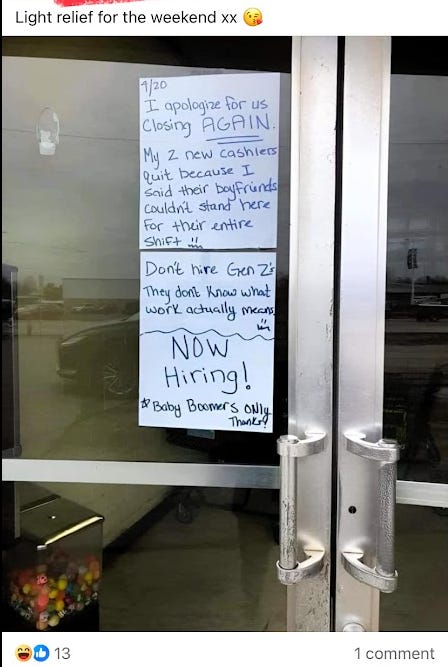


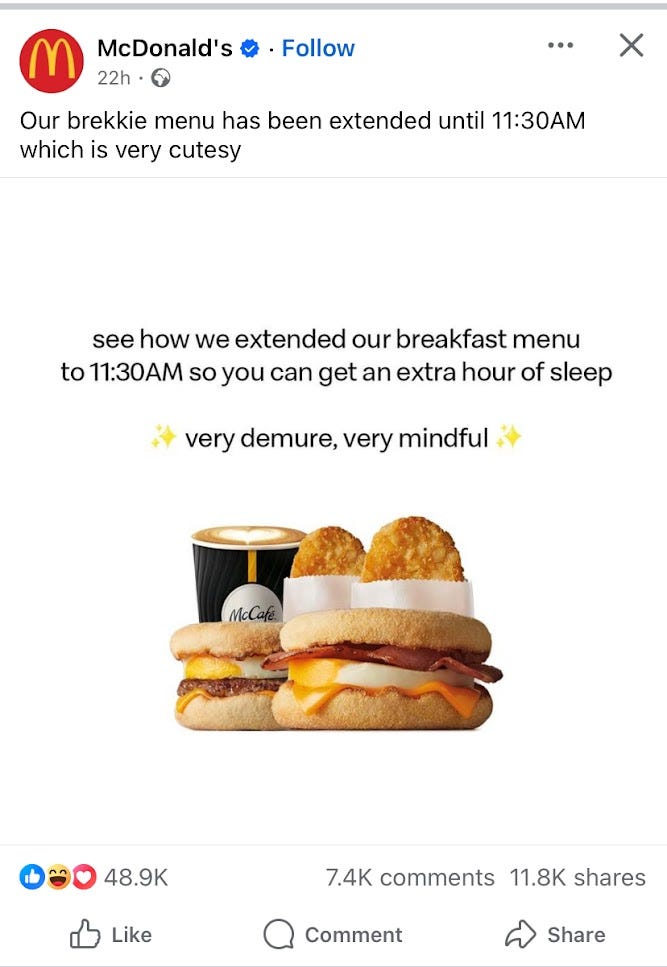
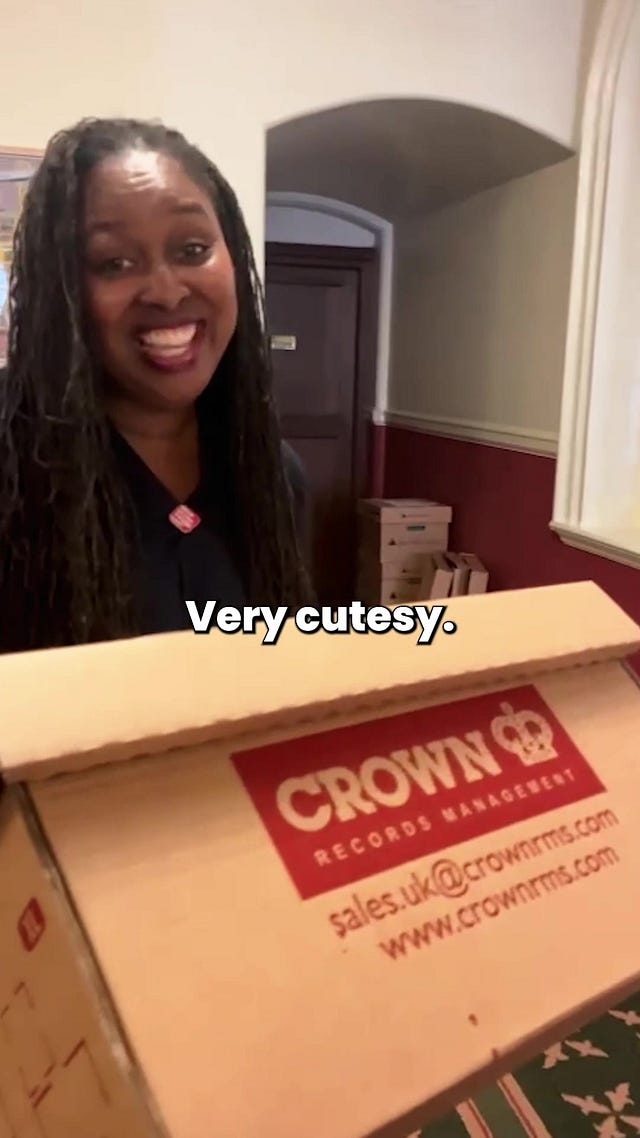

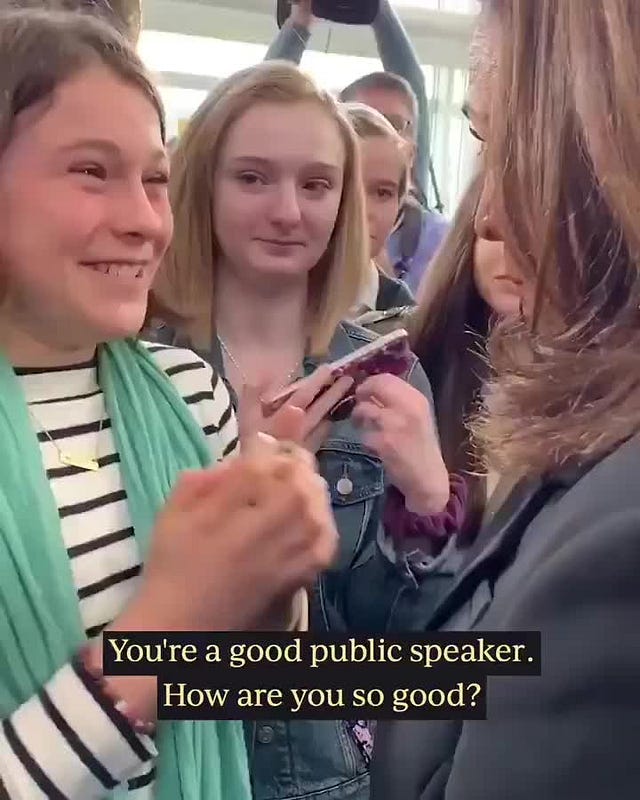
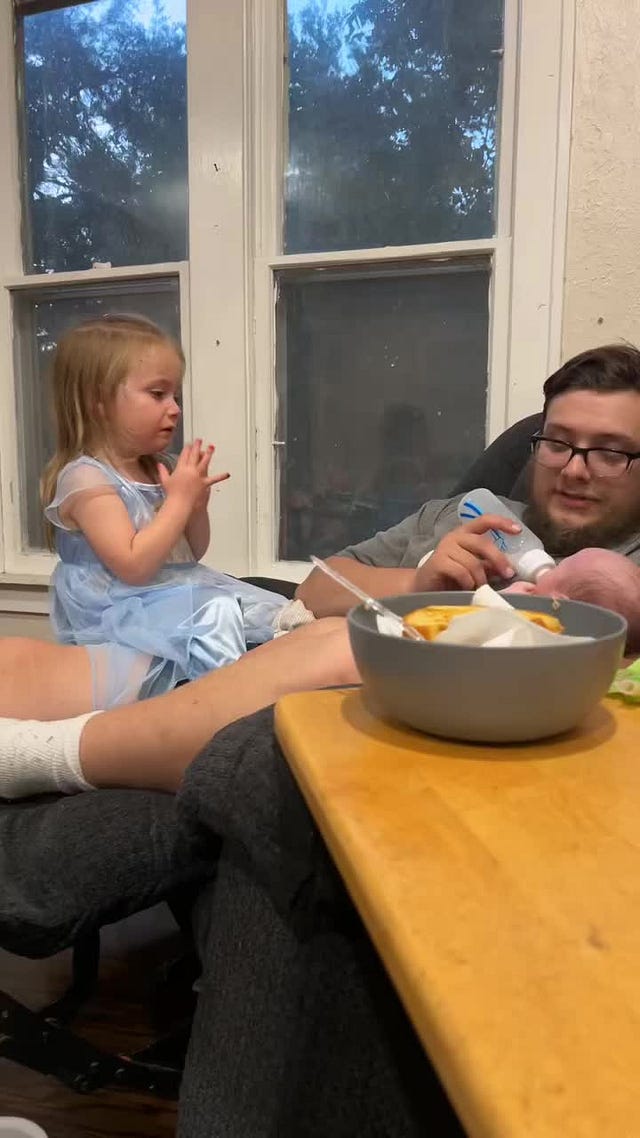
Thanks for mentioning Gen Z Translator!
Get out you were in JET? I'm on a Japan kick at the moment for their influence in manufacturing. Also I'm addicted to onsen. Small world. Also, I'm open to casual mentorship programs. Let me know what suits you.